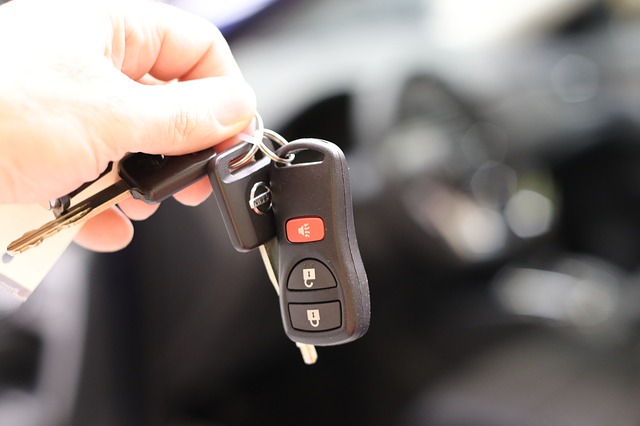Cars are complex machines and, like all machines, they can experience problems from time to time. When it comes to engine problems, some are more common than others. In this blog, we’ll be discussing the top 5 most common engine problems in cars and how to prevent them. Before we dive into the problems, it’s important to understand that regular maintenance is the best way to prevent most engine problems. Regular oil changes, checking and replacing worn belts, and checking the coolant level are all ways to help keep your engine running smoothly. Additionally, you can use oil additives that will help with engine noise.
-
Engine Misfire
An engine misfire occurs when one or more cylinders in the engine do not ignite the fuel correctly. This can happen for several reasons, such as a problem with the spark plug, fuel system, or the engine’s computer. When an engine misfires, it can cause the engine to run rough and lose power and acceleration. This rough running can also cause the check engine light to come on, indicating that there is a problem with the engine that needs to be addressed. If an engine misfire is not addressed, it can lead to further damage to the engine and its components, which can result in costly repairs.
-
Engine Oil Leaks
Engine oil leaks refer to the loss of engine oil from the engine due to a leak in the oil system, such as a damaged gasket, seal, hose, or oil pan. This can result in a loss of oil pressure and can cause engine damage if not addressed promptly. Engine oil leaks can also create a mess under the hood and on the ground beneath the vehicle. In severe cases, an oil leak can result in reduced engine performance, increased engine wear, and even engine failure. If you suspect an engine oil leak, it is important to have the vehicle inspected by a mechanic to determine the cause and address it promptly to prevent further damage.
-
Engine Overheating
Engine overheating is a common problem that can cause serious damage to your engine if not addressed quickly. The most common causes of engine overheating are a low coolant level, a clogged radiator, a failed water pump, or a damaged head gasket.
-
Engine Knocking
Engine knock, also known as engine ping, is a knocking or pinging sound that occurs when the air/fuel mixture in the engine detonates (ignites) too soon before the spark plug has fired. This can cause the engine’s pistons to knock against the cylinder walls, leading to increased engine wear and potential damage. Engine knock can be caused by several factors, including the use of low-octane gasoline, high engine temperatures, and excessive engine load. If left unaddressed, engine knock can lead to reduced engine performance, increased fuel consumption, and potential engine failure.
-
Low Oil Pressure
Low oil pressure is a common problem that can cause serious damage to your engine if not addressed quickly. The most common causes of low oil pressure are a low oil level, a worn oil pump, or damaged bearings.
-
Engine Stalling
Engine stalling is a common problem that can be caused by a variety of issues including a clogged air filter, a failing mass air flow sensor, or a worn out fuel pump.
-
Engine Ticking or Tapping Noises
Engine ticking or tapping noises refer to the sound of metal-on-metal contact within the engine, usually caused by a lack of oil pressure or a low oil level. This can result in increased engine wear and potential damage if not addressed on time. The ticking or tapping noise is often most noticeable when the engine is idling and may become louder as the engine speed increases. The cause of the noise can be related to several different components, including worn rocker arms, loose lifters, or worn camshaft bearings. If you hear a ticking or tapping noise coming from your engine, it is important to have it inspected by a mechanic as soon as possible to prevent further damage.
Some ways to prevent engine problems include:
- Regular oil changes: Regular oil changes are crucial to maintain engine lubrication and prevent wear and tear.
- Keeping a clean fuel system: Regular cleaning of the fuel system, including the fuel filter and injectors, can prevent clogs and ensure that the engine receives an adequate supply of fuel.
- Replacing worn spark plugs: Spark plugs wear over time and need to be replaced to ensure proper ignition of the fuel in the engine.
- Monitoring engine temperature: Overheating can cause serious engine damage. Monitoring the engine temperature and ensuring that the cooling system is functioning properly can prevent overheating.
- Avoiding excessive idling: Excessive idling puts unnecessary stress on the engine and can lead to excessive wear and tear.
- Regular tune-ups: Regular tune-ups help to identify and address any potential problems before they become serious issues.
- Avoiding harsh driving habits: Harsh driving, such as sudden acceleration and hard braking, can put excessive stress on the engine and its components.
- Staying current with manufacturer-recommended maintenance: Following the manufacturer’s recommended maintenance schedule can help ensure that the engine and its components are functioning properly and can prevent potential problems.
Final thoughts
In conclusion, regular maintenance is the key to preventing most engine problems. By staying on top of regular maintenance, you can help ensure that your engine runs smoothly and avoid costly repairs down the road. Additionally, using oil additives and following the preventative measures listed above can help to keep your engine running smoothly and prevent common engine problems.



